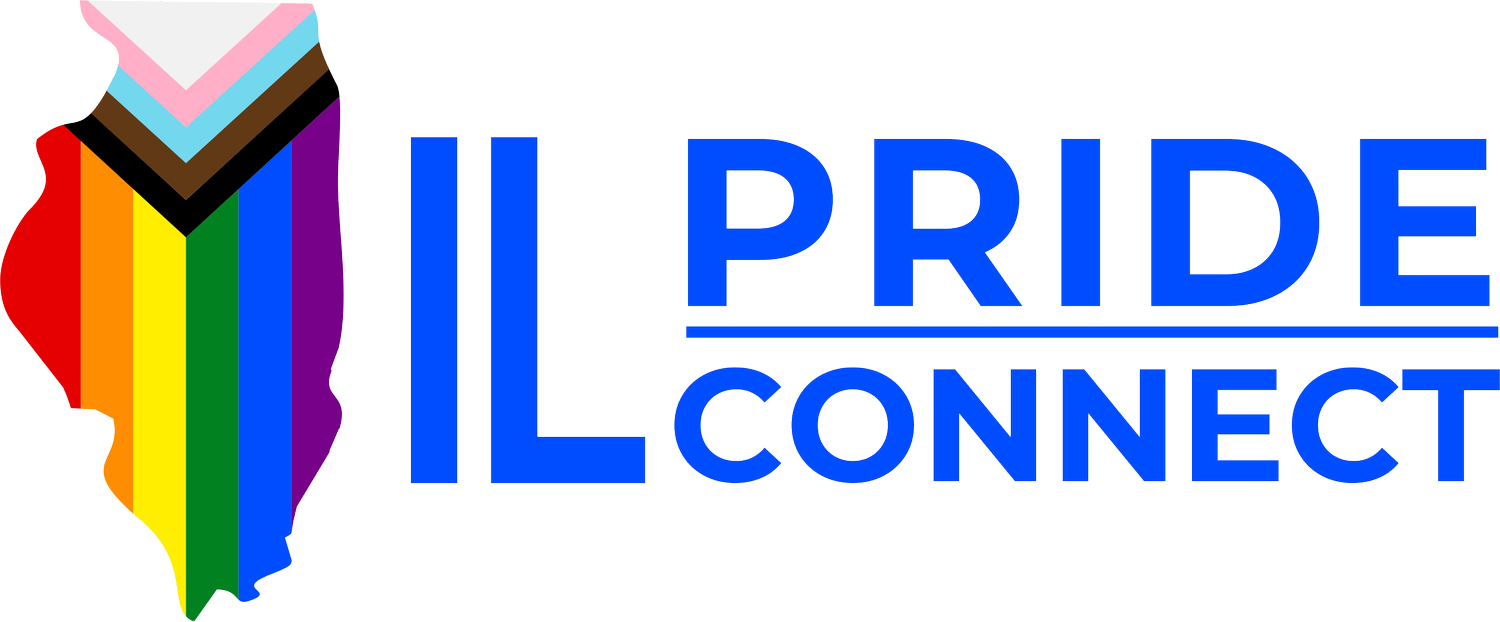
Illinois LGBTQIA+ Resource Hub
Family Protections
and Elder Rights
Summary of legal information on divorce, guardianship, and second parent/stepparent adoption for LGBTQ+ folks
Summary of legal information on end of life planning for LGBTQ+ folks:
Link to find SAGE national partners who are advancing LGBTQ+ aging equity and offering programming coast to coast:
Find providers who are trained by SAGE in LGBTQ+ aging cultural competency:
Illinois Legal Aid Online (ILAO) - Marriage and Civil Union
ILAO - Estate Planning
On-demand mental health wellness app specifically for LGBTQ+ elders and their mental health needs:
A step-by-step guide for the LGBTQ+ community in preparing for healthcare needs and end-of-life decisions:
Find expert guidance for LGBTQ+ family building including fertility resources for LGBTQ+ parents, adoption and foster resources for LGBTQ+ parents, surrogacy resources for LGBTQ+ parents, and more:
Helpful steps from GLAD LAW to take to protect your family:
ILAO - Custody and Adoption
ILAO - Birth Certificate Issues
LGBTQIA+ Family Protections
-
Marriage and civil unions are protected by law for same-sex couples in Illinois. Legalizing your partnership is a personal and intimate decision and only you know what is best for you. When taking that next step, it may be important for you to know that they are not the same in terms of protection and recognition.
In 2014, Illinois passed a state law legalizing same-sex marriage. The U.S. Supreme Court followed in 2015 with its decision in Obergefell v. Hodges, legalizing same-sex marriage across the country.. Laws in Illinois treat same-sex married couples the same as other married couples – both in marriage, and in divorce. Marriage gives you all the state and federal rights of a spouse, including Social Security, inheritance protections, possible immigration benefits, and joint tax filing.
Civil unions for same-sex couples have been legal in Illinois since 2011. These continue to be an option for couples in Illinois. Civil unions provide state protections, such as inheritance, state tax filing, and hospital visitation, but none of the federal benefits including immigration, social security, and federal tax benefits. Civil unions may also not be recognized in other states if you move out of Illinois.
-
Whether you are already raising children or planning to, Illinois law supports and protects LGBTQIA+ parents. You can have custody and legally adopt, and discrimination against you in this process is illegal. How you’re legally recognized can depend on your relationship to your partner and to the child.
Governor Pritzker signed the Equality for Every Family Act into law in December 2025, with the law taking full effect January 1, 2026. The Equality for Every Family Act expands and improves Illinois’ protections for LGBTQIA+ families. The Act will, among other things, expand the voluntary acknowledgement of parentage (VAP) process so that more parents can have legal recognition of parentage and can do so without the need for an attorney or judge.
The Act will also streamline the confirmatory adoption (second-parent adoption) process for children born through assisted reproduction. Confirmatory adoption can make your parental rights extra secure, especially in cases of moving to a new state, divorce or separation, and medical emergencies or travel complications.
-
Birth certificates are more than a piece of paper; they can influence how schools, doctors, and governments recognize your family.
Illinois allows gender-neutral parent designations on their child’s birth certificate. You can be named “Parent” rather than “Mother” or “Father.” Parents may be added to a birth certificate when meeting one of the custody or adoption situations above.
-
If you are facing discrimination, whether it is a hospital refusing to recognize your partner, a refusal to be added to a birth certificate, a school excluding you from decisions about your child, or an Illinois government form that misgenders you, you have options to explore under Illinois law. Please see the resources below and contact our legal hotline for advice and referrals at 855-805-9200.
-
Our LGBTQIA+ community thrives on mutual support and compassion, and no one knows this better than our LGBTQIA+ elders. From covertly sharing healthcare resources before there were publicly welcoming spaces, to stepping forward as caregivers for our chosen family, our history proves we have been there for one another when it matters most. We rise to face tough challenges and support one another, as the trailblazers we are. Our LGBTQIA+ elders in Illinois have the right to be free from discrimination based on their identity, and we have worked to compile affirming resources that will honor the collective strength of our community.
If you’re LGBTQIA+ and living anywhere in Illinois, you have robust legal protections, whether you are married, raising kids, or planning to do so. This page includes information regarding state laws surrounding marriage, civil unions, custody, adoption, and birth certificates for LGBTQIA+ families.
If you feel your rights are violated, you may have options. Here is an overview of some of your key rights as an LGBTQIA+ couple in Illinois:



